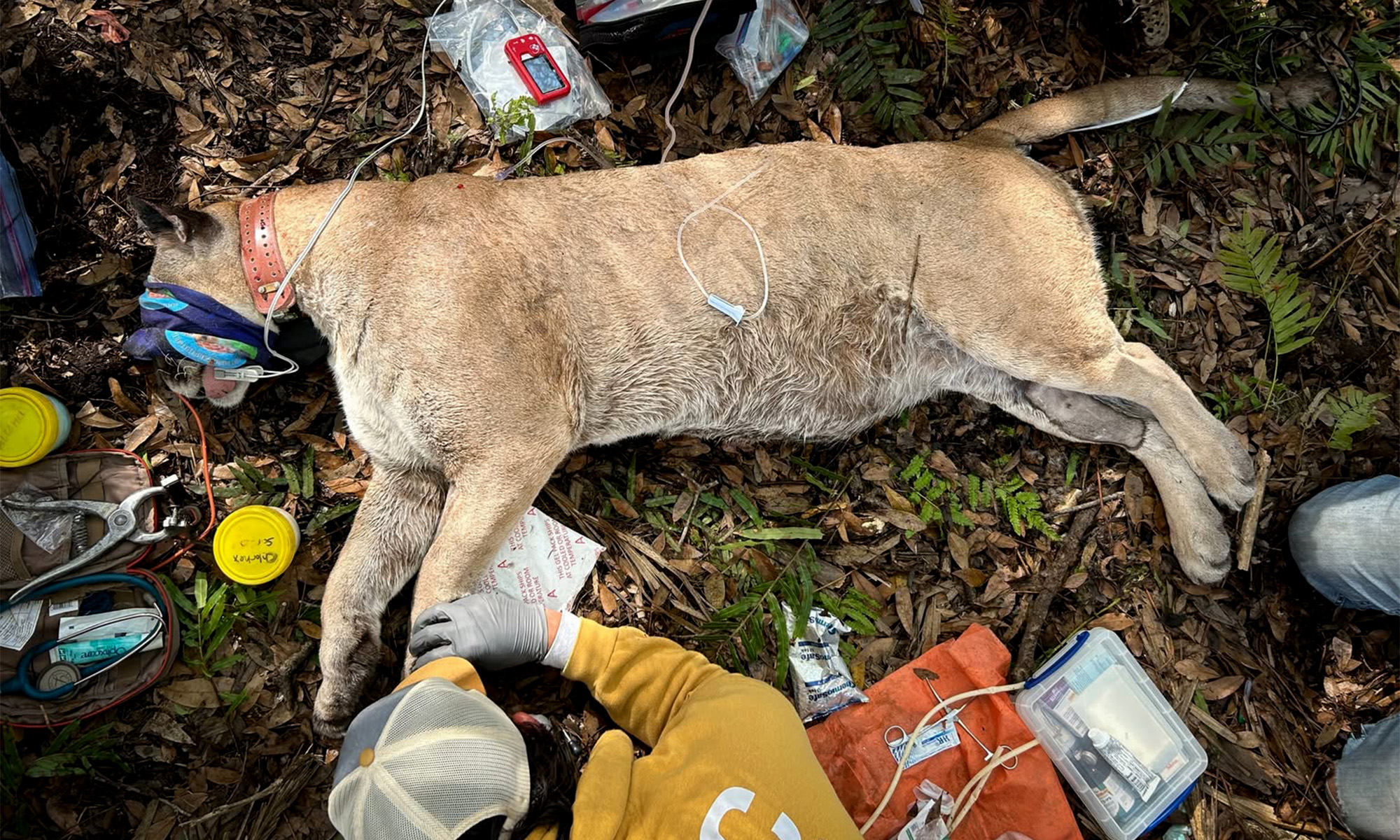A team of Florida researchers recently captured and collared what they say is the heaviest panther ever caught in the state. The big cat, a male, weighed 166 pounds, according to a statement by the Florida Fish and Wildlife Conservation Commission.
FWC says the record-sized panther was captured on Babcock Ranch, a master-planned residential community that borders the Babcock Ranch Preserve in southwest Florida. Photos shared to Facebook in late January seem to show the same panther in a tree inside the community.
The capture operation was carried out by the FWC’s research arm, the FWC Fish and Wildlife Research Institute, and it was part of a long-term project to monitor Florida’s panther population, which is listed as endangered. Official estimates say there are only around 200 of the cats left in the wild in the Sunshine State, and a key component of the ongoing research project is using GPS collars to track panthers and guide recovery efforts. One avenue of FWC research includes a mysterious disorder that’s affecting panthers and bobcats in the state.
“The GPS collars deployed on panthers allow researchers to track movement patterns survival, reproduction and habitat use, all of which help inform science-based management strategies that are critical to the recovery of this population,” the Institute explained in the social media post.
Biologists also conducted a health screening during the collaring operation, taking blood and tissue samples from the sedated panther. (The term “panther” is colloquial, as Florida panthers are a subspecies of North American cougar.)
The Research Institute did not immediately respond to a request for comment about the details behind the capture, but the process is fairly standard, and FWC captures Florida panthers every year as part of its ongoing monitoring efforts. The agency says this is a “well-coordinated effort” between wildlife biologists, trained dogs, and the skilled houndsmen who run the dogs.

In a typical capture, the dogs will chase and tree a panther until a biologist arrives with an air-powered tranquilizer gun. The team usually puts out padding or some kind of portable air cushion to catch the sedated cat when it falls from the tree. (Photographs from the recent capture show the research team holding a net underneath the treed cat.) In a less than ideal scenario, when the cat gets lodged in the tree, “a biologist will climb the tree, tie a rope around the panther and lower it safely to the ground.”
Read Next: Watch: A Biologist Darts a Mountain Lion. It Nearly Attacks Him
Fortunately for the researchers, a rope wasn’t required for the record-sized cat they treed, which easily outweighed your average Florida panther. As some social media commenters have pointed out, the cat’s neck was so thick that the GPS collar appeared tight even when fully extended. Other commenters, however, have corrected them, noting the fit was perfectly normal, and that GPS collars are designed with tension-based break points and will fall off if necessary.
Read the full article here




